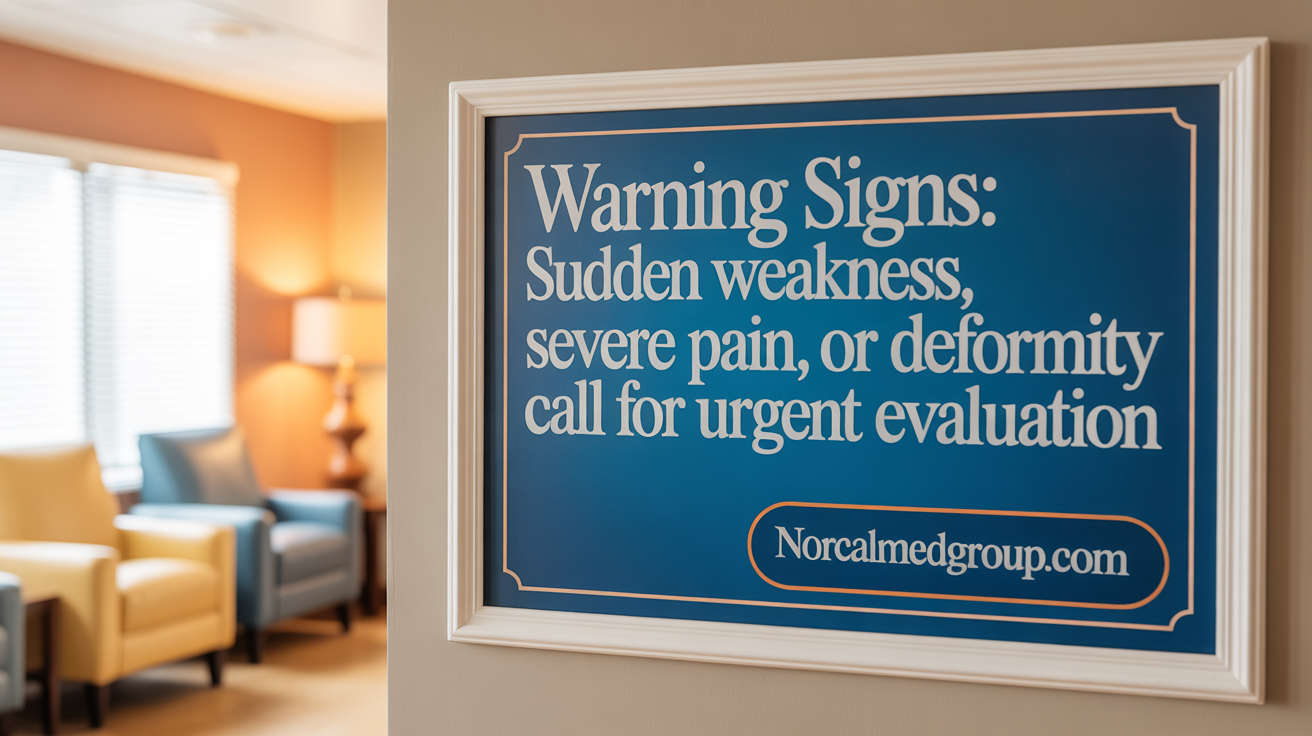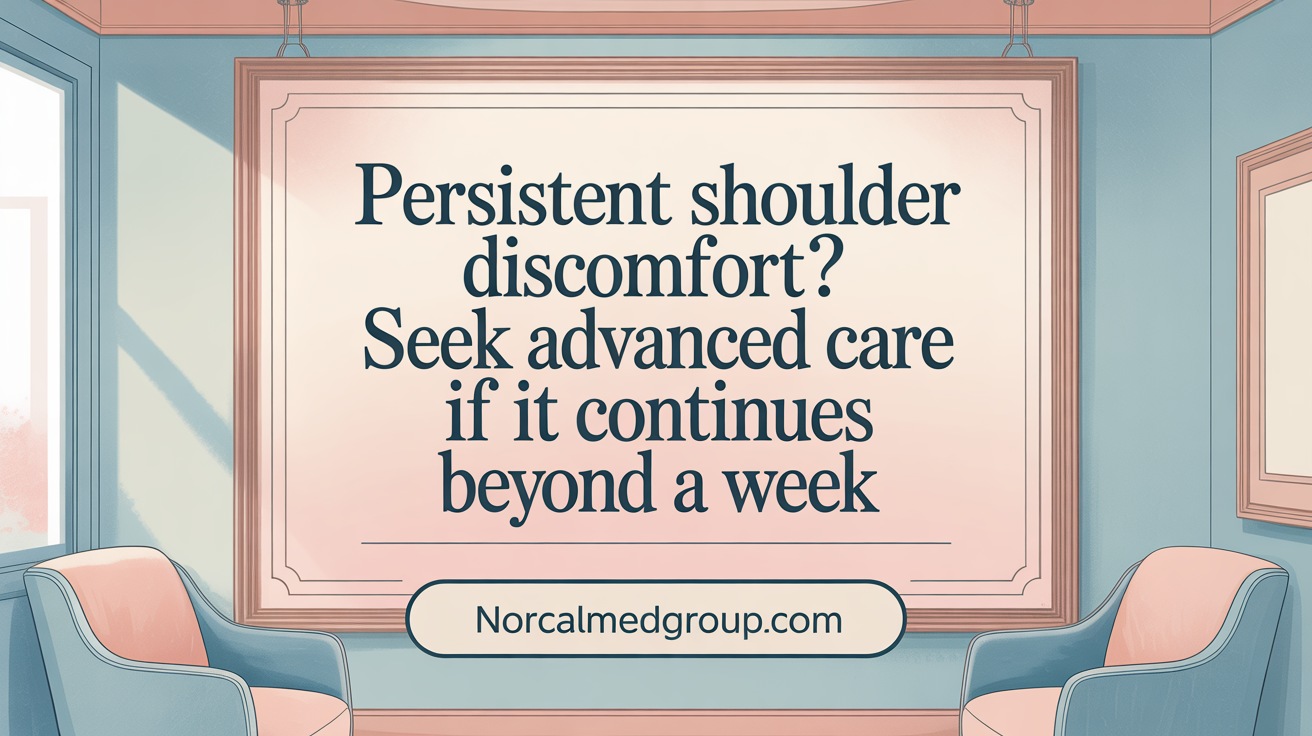Understanding the Importance of Specialist Evaluation for Shoulder Injuries
Shoulder pain and dysfunction can range from minor aches to serious injuries requiring prompt and specialized care. Recognizing the signs that indicate a need to consult a shoulder injury specialist is crucial for effective diagnosis and treatment. This article explores key symptoms and conditions that warrant professional evaluation to prevent long-term damage and improve recovery outcomes.
Recognizing Critical Symptoms of Shoulder Injury

When should shoulder pain be evaluated by a medical professional?
Shoulder pain that persists beyond a few days or weeks, especially if it does not improve with rest or over-the-counter medications, should prompt a visit to a healthcare provider. Severe pain that interferes with daily activities or disrupts sleep is also a clear sign for professional evaluation. Signs of more serious injury include swelling, bruising, and visible deformities such as dislocation or disfigurement of the shoulder. If the injury results from a fall, accident, or sports activity and is accompanied by inability to move the shoulder or arm, intense pain, or swelling, urgent medical care is necessary. Other urgent symptoms include numbness, tingling, weakness in the shoulder or arm, and signs of nerve involvement. Severe pain that suddenly worsens or prevents movement after an injury may indicate fractures or dislocation, requiring immediate attention. Symptoms that should never be ignored include chest tightness or difficulty breathing, which could suggest a more serious condition like a heart attack. In cases where the pain is persistent, worsening, or associated with redness, tenderness, or systemic symptoms like fever or weight loss, consulting a healthcare professional ensures proper diagnosis and treatment. While minor shoulder discomfort can often be managed with home care, such as rest, ice, or gentle stretching, persistent or severe symptoms demand evaluation by a specialist to determine underlying causes like rotator cuff tears, bursitis, or arthritis. Timely intervention can prevent further damage, improve outcomes, and restore shoulder function. If unsure whether symptoms warrant immediate or scheduled attention, it is best to seek advice from a medical expert.
Key Symptoms Indicating Specialist Consultation Is Necessary

What symptoms indicate the need to consult a shoulder injury specialist?
Persistent shoulder pain that lasts more than a few weeks and progressively worsens is a strong signal to seek specialized medical advice. If the pain persists beyond 4 weeks despite rest, over-the-counter medication, or conservative treatments, it might be due to underlying injuries like rotator cuff tears, bursitis, or arthritis.
Weakness in the shoulder or arm that makes it difficult to perform daily activities, such as carrying objects or reaching overhead, also indicates a need for professional assessment. Limited range of motion, stiffness, or the inability to lift the arm suggests conditions such as frozen shoulder, impingement, or labral tears.
Pain occurring at rest or severe pain that disrupts sleep can be signs of more serious issues like rotator cuff injuries or inflammatory conditions and should be evaluated by a specialist.
Additionally, clicking, popping, or snapping sounds during shoulder movement may point to instability or internal damage requiring diagnostic attention. Visible signs like swelling, bruising, deformity, or abnormal shoulder positioning following injury are urgent red flags that merit immediate medical evaluation.
Symptoms following previous shoulder surgery or trauma—especially if recurrent or worsening—also call for expert consultation. Numbness, tingling, or systemic symptoms such as redness, warmth, or fever associated with shoulder pain are signs of infection or nerve involvement that need prompt medical attention.
In summary, persistent, severe, or worsening shoulder symptoms—especially when combined with limited mobility, weakness, or visible abnormalities—are indications to consult a shoulder specialist for accurate diagnosis and appropriate treatment.
Determining the Appropriate Specialist for Shoulder Evaluation

What type of doctor should I see for a shoulder injury?
For shoulder injuries, it is recommended to consult an orthopedic doctor, a specialist in diagnosing and treating musculoskeletal problems. These professionals can perform detailed evaluations to identify the root cause of shoulder pain, whether it’s a rotator cuff tear, dislocation, fracture, or other conditions.
Early consultation plays a vital role in managing shoulder issues effectively. If symptoms such as persistent pain lasting more than a few days, limited motion, weakness, numbness, or swelling are present, seeing an orthopedic specialist helps prevent worsening conditions.
Diagnostic methods include a comprehensive physical exam, along with imaging tests like X-rays and MRI scans. These help determine the extent of injury and assist in planning appropriate treatment.
Once diagnosed, treatment options may range from conservative approaches—such as physical therapy, anti-inflammatory medications, or corticosteroid injections—to surgical interventions like arthroscopy or shoulder replacement, depending on the severity of the injury.
In cases involving fractures or dislocations, urgent medical attention is essential. Immediate care and stabilization can prevent long-term damage and facilitate better recovery outcomes.
Seeking care promptly from an orthopedic specialist ensures that the injury is accurately assessed and that a tailored treatment plan is implemented to restore function and reduce pain.
Understanding When Surgery or Advanced Treatment Is Needed

What are signs that conservative treatments like rest, ice, or physical therapy have failed?
If shoulder pain persists beyond a week despite trying home remedies such as rest, ice, or over-the-counter medications, it may signal an underlying issue that conservative methods cannot resolve alone. Ongoing pain, swelling, or worsening symptoms should prompt a consultation with a healthcare professional.
Persistent pain that disrupts daily activities or sleep also shows that more advanced evaluation might be necessary. When initial treatments do not provide relief, it's important to seek expert advice to identify potential structural damage.
How can you tell if your shoulder injury involves structural damage like rotator cuff tears or cartilage injuries?
Symptoms such as localized pain during overhead lifting, nighttime discomfort, shoulder weakness, limited range of motion, and noises like popping or clicking are signs of possible rotator cuff injuries or other structural problems. Difficulties raising the arm or reaching behind the back further indicate significant tissue damage.
Visible swelling, bruising, deformity, or sudden severe pain following injury may also indicate structural injury requiring prompt medical evaluation. Imaging tests like MRI or X-ray are often used to confirm these conditions.
When should you consider surgical evaluation for shoulder issues?
Indicators that surgery may be necessary include persistent or worsening pain, limited mobility affecting daily tasks, noticeable deformity or instability, and weakness or inability to carry objects comfortably. If symptoms continue despite conservative treatments, or if there is a visible injury such as dislocation or fracture, consulting a shoulder specialist is essential.
Signs like locking, popping, or grinding during shoulder movements, or a sense of shoulder 'slipping out,' suggest instability or labral injuries that might need surgical intervention.
What conditions often require procedures like shoulder arthroscopy or replacement?
Chronic conditions such as osteoarthritis, where the joint cartilage wears down, may lead to shoulder replacement. Severe rotator cuff injuries, especially those involving muscle tears that cannot be repaired conservatively, might also require surgery.
Labral tears, significant instability, or recurrent dislocations are other conditions frequently addressed with minimally invasive arthroscopic procedures. In cases of advanced degeneration, shoulder joint replacement may restore function and reduce pain.
Why is specialist evaluation crucial for determining the appropriate treatment?
An orthopedic or shoulder specialist conducts comprehensive assessments, including physical examination and imaging studies, to pinpoint the exact cause of shoulder pain. This helps ensure that treatment—whether conservative or surgical—is suitable for the specific condition.
Early evaluation can prevent worsening of injuries, improve outcomes, and reduce recovery time. When signs such as persistent weakness, deformity, or severe pain appear, seeing a specialist becomes essential to develop an effective management plan.
Navigating Access to Shoulder Specialist Care

Do I need a referral to see a shoulder specialist?
Some health insurance providers, particularly HMOs, require a referral from a primary care physician before covering specialist visits. This means scheduling an appointment with a shoulder specialist often involves first seeing your general doctor who can provide a referral.
However, if you have a PPO plan or are paying out of pocket, you may be able to schedule directly with a specialist without needing a referral. It’s essential to check your specific insurance policy to understand its requirements.
Options for scheduling appointments when no referral is needed
For those without referral barriers, scheduling is straightforward. Many clinics and hospitals offer online booking options, or you can call the specialist’s office directly.
If your insurance doesn’t require a referral, booking an appointment can often be done promptly, especially if your symptoms are severe or worsening.
Tips for preparing for a shoulder specialist consultation
Before your visit, keep track of your symptoms, noting when they started, their severity, and any activities that worsen or relieve discomfort. Write down questions or concerns to discuss.
If possible, gather relevant medical records, previous imaging results, or notes from your primary care provider. Bringing a detailed symptom log helps the specialist evaluate your condition effectively.
Overview of the diagnostic process during the consultation
During your visit, the specialist will perform a physical exam, assessing shoulder range of motion, strength, and stability.
Imaging tests such as X-rays or MRI scans may be ordered to visualize bones, soft tissues, and ligament integrity. These diagnostics help pinpoint the cause of your pain or dysfunction.
Encouragement to seek timely evaluation to avoid complications
Early assessment and treatment are crucial to prevent worsening conditions like rotator cuff tears or shoulder instability. Persistent or severe shoulder pain should not be ignored.
Timely specialist care ensures appropriate interventions, reduces recovery time, and helps restore your shoulder’s function, preventing long-term impairment or complications.
Taking Action: When to Consult a Shoulder Injury Specialist
Persistent, severe, or unexplained shoulder symptoms should never be ignored. Recognizing the signs that warrant professional evaluation can help prevent long-term damage and improve quality of life. Whether the pain arises from injury, overuse, or chronic conditions, early consultation with an orthopedic specialist is key to accurate diagnosis and effective treatment. Understanding your insurance needs and acting promptly when symptoms escalate ensures you receive appropriate care in a timely manner.
References
- Signs It's Time to Have Your Shoulder Pain Looked At
- Signs You Need to See a Shoulder Doctor for Chronic Pain
- Seeing an Orthopedic Doctor for the Shoulder | Raleigh Ortho
- Signs You Need to See a Doctor for Shoulder Pain
- Signs You Need a Doctor for Torn Rotator Cuff Pain
- When to See an Orthopaedic Specialist for Shoulder Pain
- Shoulder Pain and Injury | University of Miami Health System
